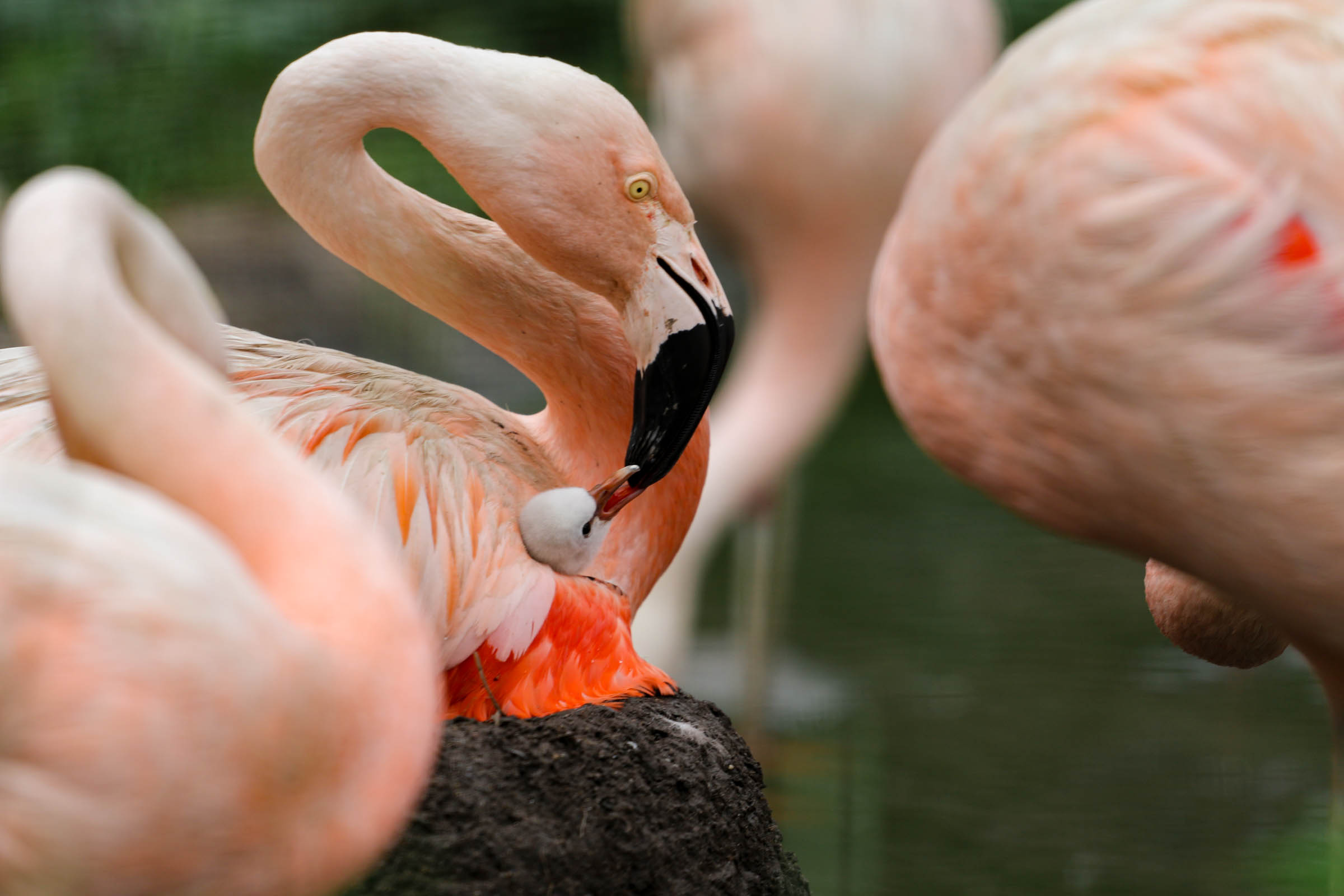Highlights of 2023: Sharing Tracy Aviary’s Impact

“Are we gonna see any wild animals on our walk?” One summer day, a group of kids and camp counselors walked along the Jordan River Parkway, learning about birds and insects that live by the river. The kids had come from the nearby Midvale Family Resource Center; this was our first year offering a summer camp for kids and families staying at the shelter.
“You see that butterfly? It’s a wild animal,” a counselor replied. “And that bird, in that tree over there, that’s a wild animal too.”
“Whoa!” the kid hadn’t realized that even something small like a butterfly could be a wild animal. “I can’t wait to see more!”
We love to see kids and adults connect with the wild spaces around them, and we’re sure you do too. Every day at Tracy Aviary in Liberty Park and at Tracy Aviary’s Jordan River Nature Center, we introduce people to birds and foster renewed appreciation for the natural world. In the past year, we welcomed more than 155,000 guests to Tracy Aviary and the Nature Center, while establishing partnerships with almost 100 organizations and community groups. We hope you’ll continue to support the work our team does to inspire curiosity and caring for birds and nature.
This year brought many successful hatchings: Chilean Flamingo, Cape Thick-Knee, Marbled Teal, Ruddy Duck, Bali Myna, Violet Turaco, Red-capped Cardinal, White-throated Ground Dove, Northern Helmeted Curassow, and Red Siskin. Red Siskins are endangered in their native Guyana and Venezuela due to habitat loss and trapping for their beautiful red feathers; our breeding program builds husbandry knowledge and educates visitors about conserving this species.
With all these babies, how do we not run out of space? When the chicks grow up, oftentimes we coordinate with other zoos to pair them with a potential mate and encourage breeding. This helps grow populations within the zoo community, increases genetic diversity, and contributes to the long-term goal of some species being reintroduced to the wild.
Our bird show has continued to inspire and awe visitors. We debuted a new show, “Tiny But Mighty,” which features our smallest birds: Roscoe the Greater Roadrunner, Phoenix the Aplomado Falcon, Harriet the Burrowing Owl, Zuri the Yellow-billed Hornbill, and Ian the Patagonian Burrowing Parrot. More often than not, they’re the ones with the biggest attitudes: you don’t need to be big in size to make a big difference!
We continue to pursue projects that improve animal welfare, including the construction of a new surgery room in our Avian Health Center that allows us to perform most surgeries onsite. This cuts down on transport time and cost associated with traveling to a vet clinic and reduces the stress of injured or sick birds, ultimately improving their surgery outcomes and overall health.
In other news, the Jordan River Nature Center’s Phase II is almost finished. There is much additional planting and gardening to be done, but we are very excited to start using the George S. and Dolores Doré Eccles Amphitheater, Emma Eccles Jones Pavilion, bird blind, The ALSAM Foundation Observation Tower, and many new walking paths that meander through the gardens. The expanded space will allow us to expand the reach of our mission – using arts like poetry and dance, nature and bird walks along the river, and more to introduce people to the natural environment and foster a sense of place along the river. We’ve hired additional Nature Center hosts to plan events, lead bird and nature walks, and welcome people to the Nature Center.
We always seek to pay our staff more fairly, so that a job at a zoo or nature center isn’t just for the privileged few who already have savings or means to do so. However, we have struggled with rising costs which make this difficult, especially as we expand programming. We want to keep admission prices reasonable and keep our spaces and programming accessible to all Salt Lake residents and visitors. We continue to offer free admission to teachers, Title 1 schools, and those with an EBT card, and began offering free admission to members of tribal nations this year. With increased costs, we ask that you consider donating a little bit more than you did last year.
Will you donate this year to support our work? You donate here or give us a call at 801-596-8500 x112.
Tim Brown, President / CEO
Sandra Kinzer, Development Manager
(development@tracyaviary.org)